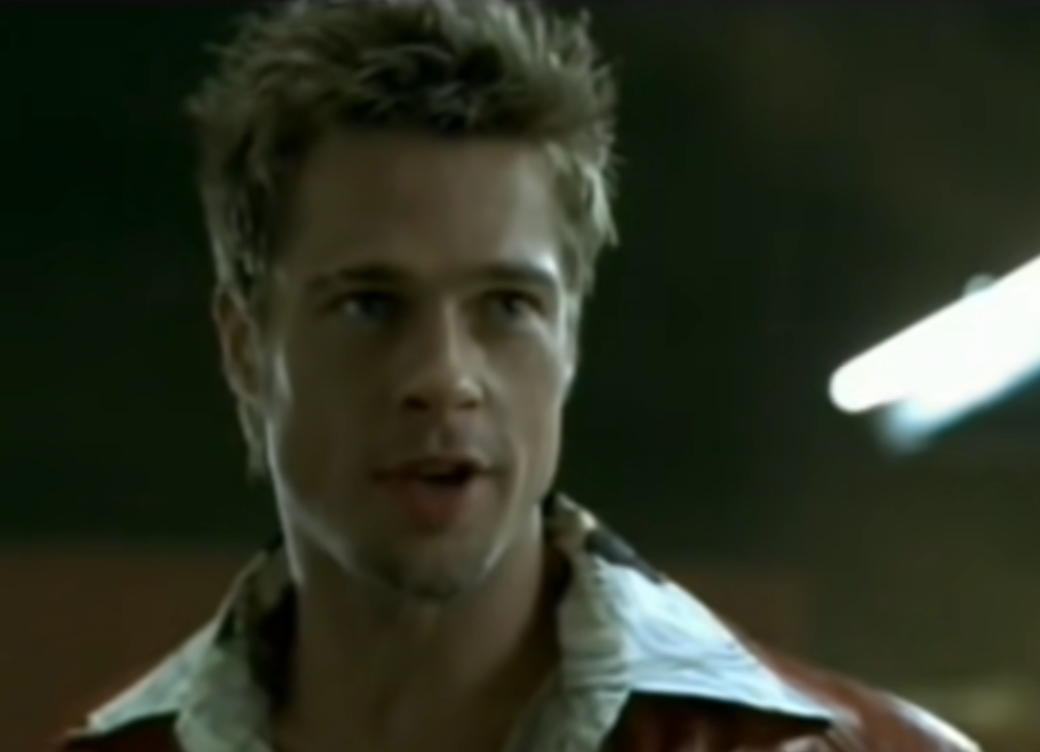China’s censorship of Fight Club might be even stranger than it first appears
The west has its own checkered history with censorship — and increasingly, the censors of Hollywood and Beijing have begun to align

This week, there was outrage when it was reported that Fight Club’s ending had been censored in China. The ending as most westerners know it features Edward Norton and Helena Bonham-Carter watching seven skyscrapers collapse in the name of anarchy. In the censored version available in China, it features a blank screen rather than the explosions and then a wall of text that says police arrived and were able to stop the anarchic destruction just in time, before committing Tyler Durden/the narrator to a psychiatric ward.
In censoring Fight Club’s ending, this bizarre China-Hollywood synergy gave western news outlets an easy one. Many of the reports were written in that self-congratulatory, mocking tone western writers love to employ when dunking on an obvious wrong in a non-western country. These articles double as reassurances to western readers that our countries aren’t China, that home truths eventually win out here. But we’re all missing a crucial point in the news cycle — this kind of blatant revisionism has always been a part of mass media, no matter the venue. And it’s getting worse in the era of corporate globalism.
The difference? The west goes about it in a less ham-fisted way.
At least it did in less sensitive times like 1999, and the pre-9/11 environment into which Fight Club was released. As those skyscrapers collapse at the conclusion of the film, Norton says, “Trust me. Everything’s going to be fine.” He takes Carter’s hand. It’s romantic.
A couple years later, ending on a note of romantic anarchy like this would be unthinkable.
Immediately after 9/11, shots of the Twin Towers were erased from in-production films. The World Trade Center-centric climax of Men in Black II, which would be released in 2002, was reshot. For movies that just used the Towers as backdrop, like Spider-Man and Zoolander, Hollywood did its own version of ham-fisted, digitally erasing the buildings in post-production.
Older films like Armageddon, Home Alone 2, and the 1976 version of King Kong were chopped more brazenly on their post-9/11 TV showings.
There is a difference in top-down censorship like the kind China practices and corporate America’s focus-group version, of course. China’s censorship is autocratic. It’s the version that dares you to call its bluff and say that what you clearly witnessed did not happen. It uses brute force rather than finesse. It also has disturbing links with political repression. And it’s so powerful that its gravity is altering our own process.
Fight Club’s altered ending is only the most clickable example of this. A 2020 report called “Made in Hollywood, Censored by Beijing” by literary nonprofit PEN America goes into detail on some of the more significant China-inspired changes of recent years.
Some of these tweaks fly under our radar, but their effect is far more meaningful than offending western sensibilities. Check out this Taiwan News headline from 2019: “DreamWorks bootlicks China with ‘9-dash line’ including Taiwan in Abominable.” Yes, an American children’s movie recognized the heavily disputed sovereignty of mainland China over Taiwan.
The American brand of censorship is the free market version. And now that Chinese box office receipts routinely surpass North America’s, these dual models of censorship are starting to converge.
The western version of censorship is indistinguishable from PR, and PR can always be spun. Our domestic PR machines deliver similar challenges to established facts, even if they appear more conciliatory.
The PR machines are always working. Witness Marvel Studios President Kevin Feige’s recent mea culpaon the matter of Tilda Swinton’s wise old guru in Doctor Strange. Many argued that casting Swinton in the role was a clear example of whitewashing.
“We thought we were being so smart and so cutting-edge,” Feige told Men’s Health in a 2021 interview. “We’re not going to do the cliché of the wizened, old, wise Asian man. But it was a wake-up call to say, ‘Well, wait a minute, is there any other way to figure it out? Is there any other way to both not fall into the cliché and cast an Asian actor?’ And the answer to that, of course, is yes.”
Feige’s answer assumes that the problem with the casting decision was purely based in Hollywood racism. There’s a different way of explaining this change that relies on the way Hollywood economics work in the modern age, and Doctor Strange co-writer C. Robert Cargill gave it in 2016: “If you acknowledge that Tibet is a place and that [Swinton’s character is] Tibetan, you risk alienating one billion people who think that that’s bullshit and risk the Chinese government going, ‘Hey, you know one of the biggest film-watching countries in the world? We’re not going to show your movie because you decided to get political.’”
Of course, maybe we’re burying the lede here. The very last frame of Fight Club shows a spliced-in penis — maybe Brad Pitt’s from earlier in the movie, from his time as a mischievous movie theater projectionist.
China doesn’t love showing any type of nudity to its audiences. And Brad Pitt nudity filmed in the middle of his 20-year Chinese ban for starring in Seven Years in Tibet? That’s possibly the worst type of d**k pic the Chinese censors could encounter.
Join our commenting forum
Join thought-provoking conversations, follow other Independent readers and see their replies
Comments
Bookmark popover
Removed from bookmarks